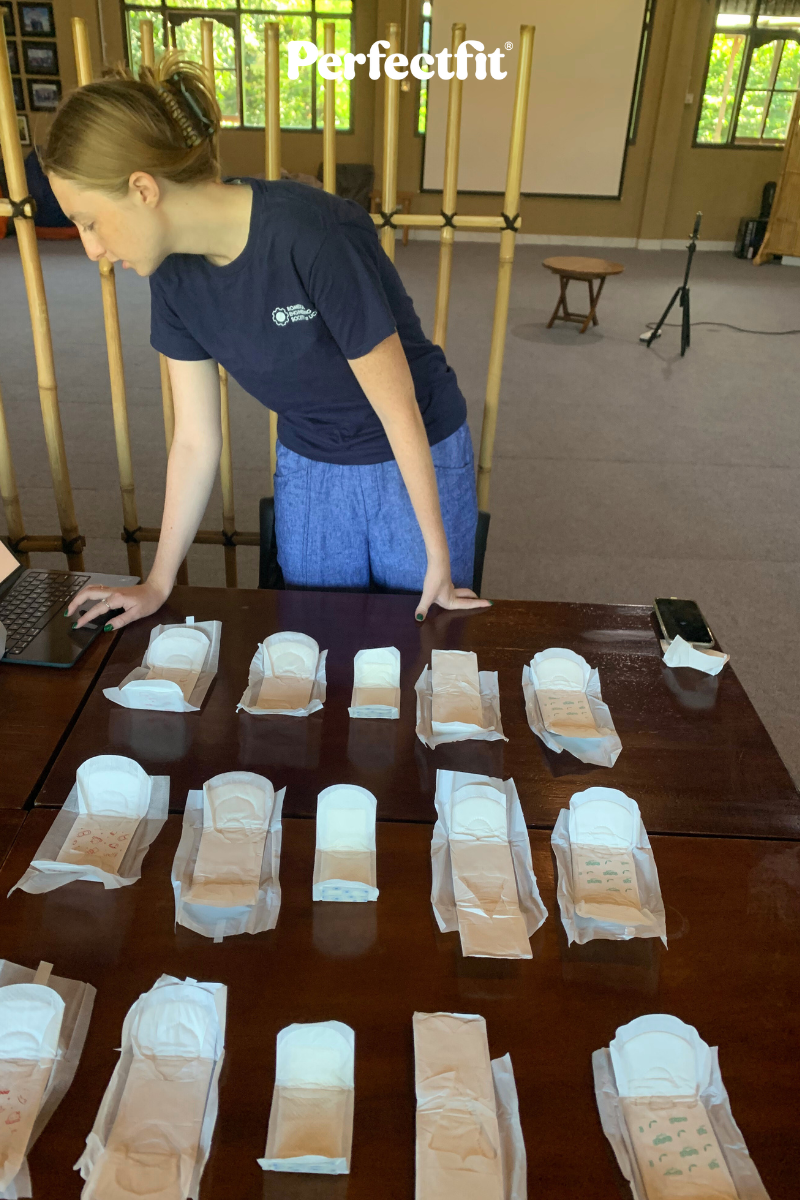
Menstrual Pads, Plastic Waste, and Taboos: Lessons from Indonesia
Written for her summer internship, August 2023
Before coming to Perfectfit I knew single use pads were impacting the environment but I didn’t realize just how much or why they are the only option for so many people. When researching the effect of menstrual pads on the environment, the numbers shocked me even though I knew they were coming. National Geographic states that on average a menstruator can use between 5 and 15 thousand pads and tampons in a lifetime (2021). If millions of people around the world are using thousands of pads, that’s a lot of waste being added to an already burdened system.
Indonesia in particular is running out of space for landfills with about 67.8 million tons of waste being added to them per year according to Greeneration Foundation (2022). This is a problem that has already reached a crisis with the explosion in Leuwigajah Waste Processing Center in Cimahi, West Java in 2005 burying two villages and killing at least 157 people. Delterra explains that fees for waste collection are often through private arrangements and not the government which does not encourage waste separation (2022). Moreover, waste collection can be an expensive cost, so some opt to burn their waste instead (Wirajuda, 2023). This is a large contributor to greenhouse gas emissions and the fumes from waste burning can be extremely toxic to people. Yet with low access to waste management and laws against waste burning that are not well enforced, it continues.
This brings us to the importance of environmentally friendly options for menstrual products. While there are now some reusable options for menstrual care gaining notability, many people don’t have access or don’t feel comfortable using these. In my time here I have learned alot about taboos surrounding menstrual health that affect people in ways so different from what I have experienced. When I first got my period I knew I had the option between pads and tampons; I could decide based on comfort or what was right for the activities of the day. I have learned that where I got to make a choice in what was right for me, so many people were just given pads as the only option because their families and societies told them that tampons were not ok.
Some cultures believe that using a tampon takes away a girl's virginity, and while this is proven untrue, it is a strong belief and one that is still being passed on. This myth carries over to more insertable menstrual products such as menstrual cups which hold more blood and can be reused for months to years. Not only does a newly menstruating person tend to believe what their mother tells them when getting their first period, they also might be too afraid to ask more because of the taboos surrounding menstruation. In her article on what it’s like growing up believing tampons take virginity, Leila Ettachfini shares that even though her mother never forbade her from using tampons, the lack of discussion about tampons perpetuated the myth still (2018). This lack of dialogue is what makes it so difficult to break myths like those about tampons and insertable menstrual products and give menstruators more options. An article in The Jakarta Post points out that it can be difficult to educate on the topic because it would be seen as promoting sexual intercourse (2020); beliefs like this lead to a lack in comprehensive reproductive health education and keep these harmful myths alive.
It is so important to talk about menstruation and break these taboos for the safety of the environment and for the safety of menstruators. In research Unicef has done on menstruation in Indonesia, they have found that there is a lack of facilities in schools that can make menstrual care very difficult for students. Due to this and the fear of classmates finding out and bullying them, students have often called in sick during their periods so they can deal with it in the comfort of their home. When students do go to school on their period but still don’t feel comfortable managing their period in the provided facilities, they will often leave pads on for longer than recommended which can have a poor impact on their health over time. These factors affect students' health and learning and pose a barrier to young menstruators trying to make the most of their education. This is why it is so important for us to talk about menstruation and educate the people around us on these topics. Let me know if you had a similar, or entirely different, experience in the comments below!
Sources
Borunda, Alejandra. “How Tampons and Pads Became Unsustainable and Filled with Plastic.” Environment | The Story Of Plastic, 3 May 2021.
Douglas, Jeremy. “The Reality of Fixing Waste and Recycling in Bali.” Delterra, 5 June 2022.
Ettachfini, Leila. “What It’s like Growing up with the Belief That Tampons Take Virginity.” VICE, 27 July 2018.
Harris, Katie. “Spotlight Indonesia: Myths and Menstrual Taboos.” The Jakarta Post, 2 Mar. 2020.
Santoso, Vania. “Adolescent-Friendly Technology Helps Girls Facing Menstruation during COVID-19.” UNICEF Indonesia, 27 May 2020.
UNICEF. “Indonesian Students Break Taboos, Misconception Surrounding Menstruation.” UNICEF Indonesia, 25 Apr. 2022.
Wienda Saraswati, Aviaska. “The Threat of Indonesian Waste Management Problem.” Greeneration Foundation, 3 Feb. 2022.
Wirajuda, Tunggul. “New Research Shows True Danger of Waste Burning in the Greater Jakarta Area.” Asia News Network, 24 Mar. 2023.
